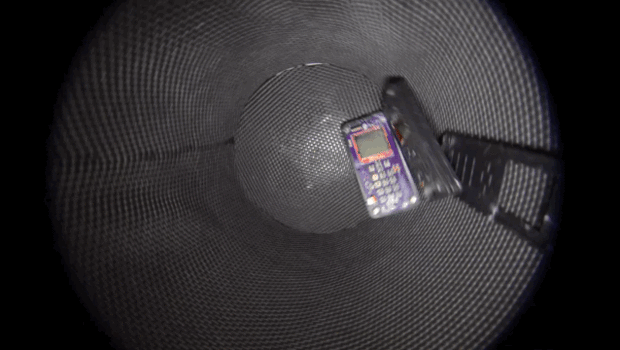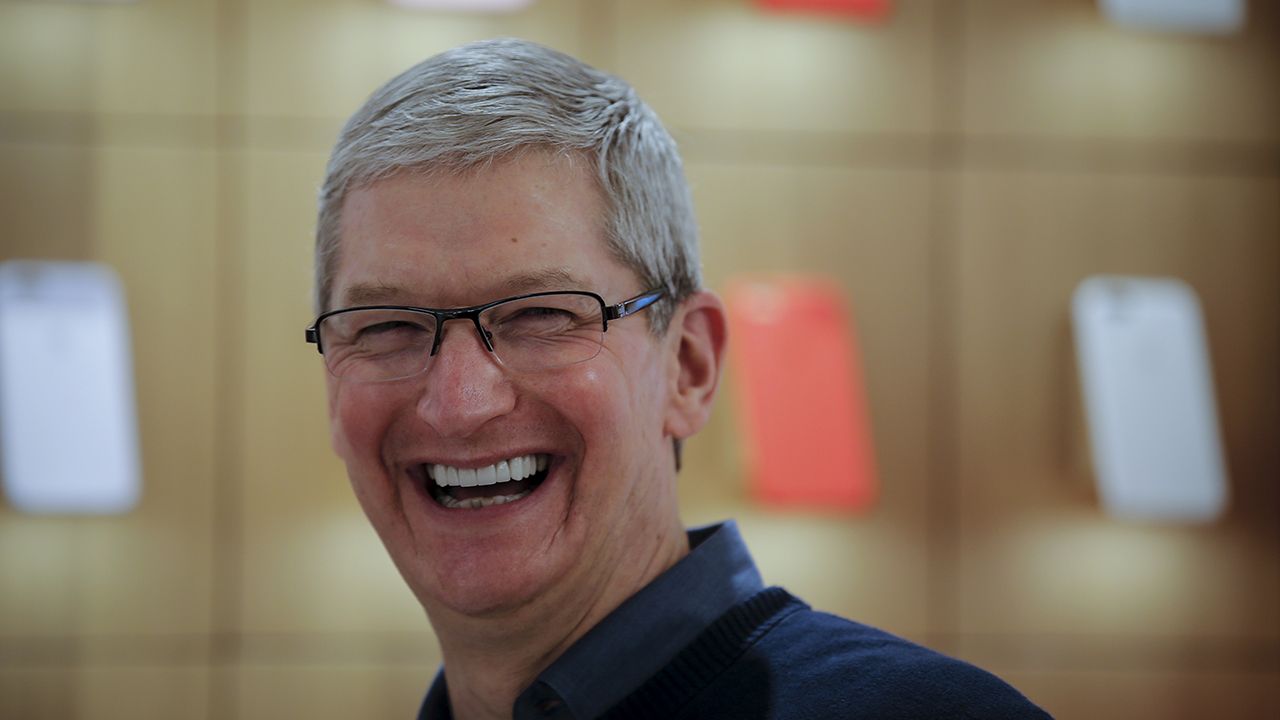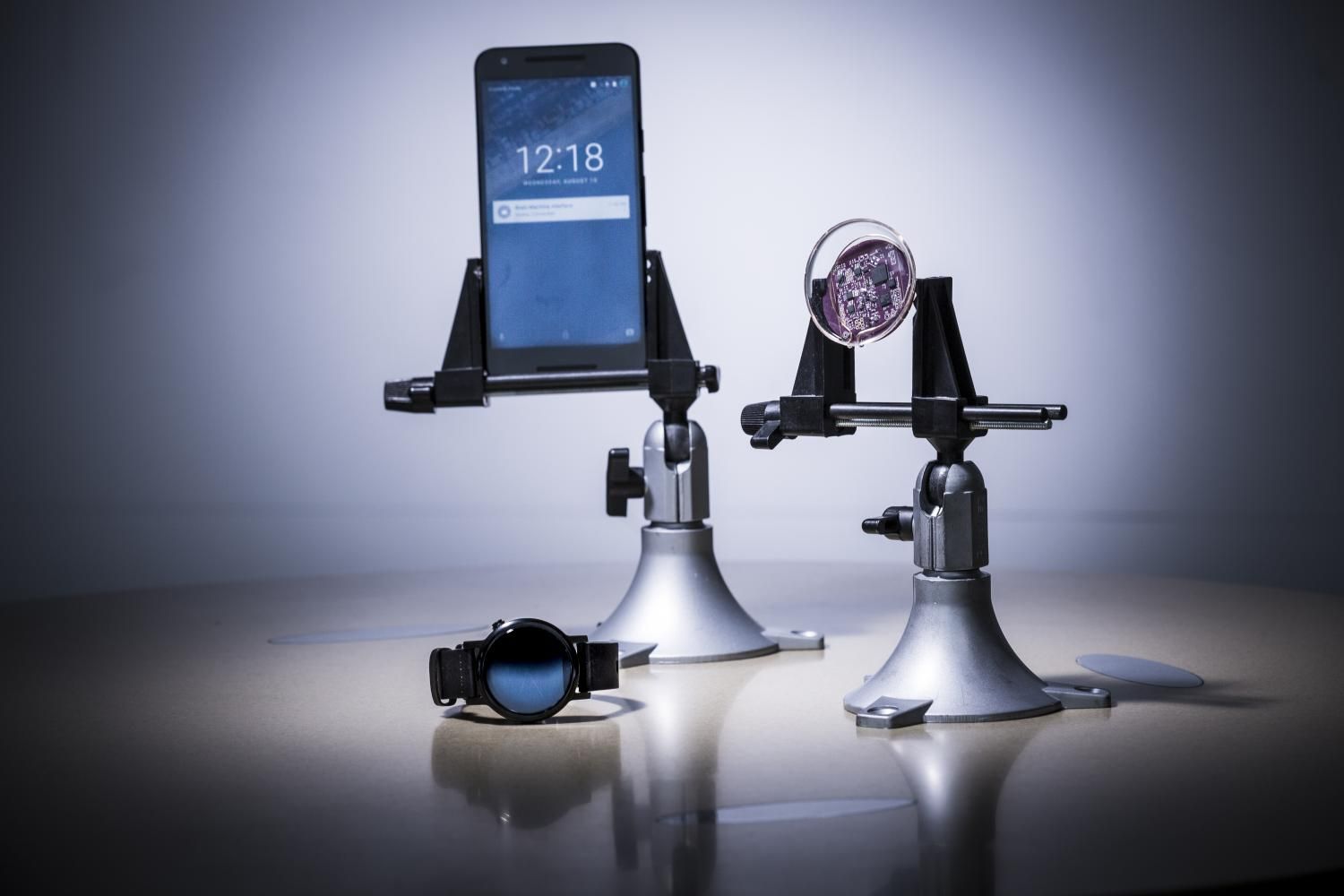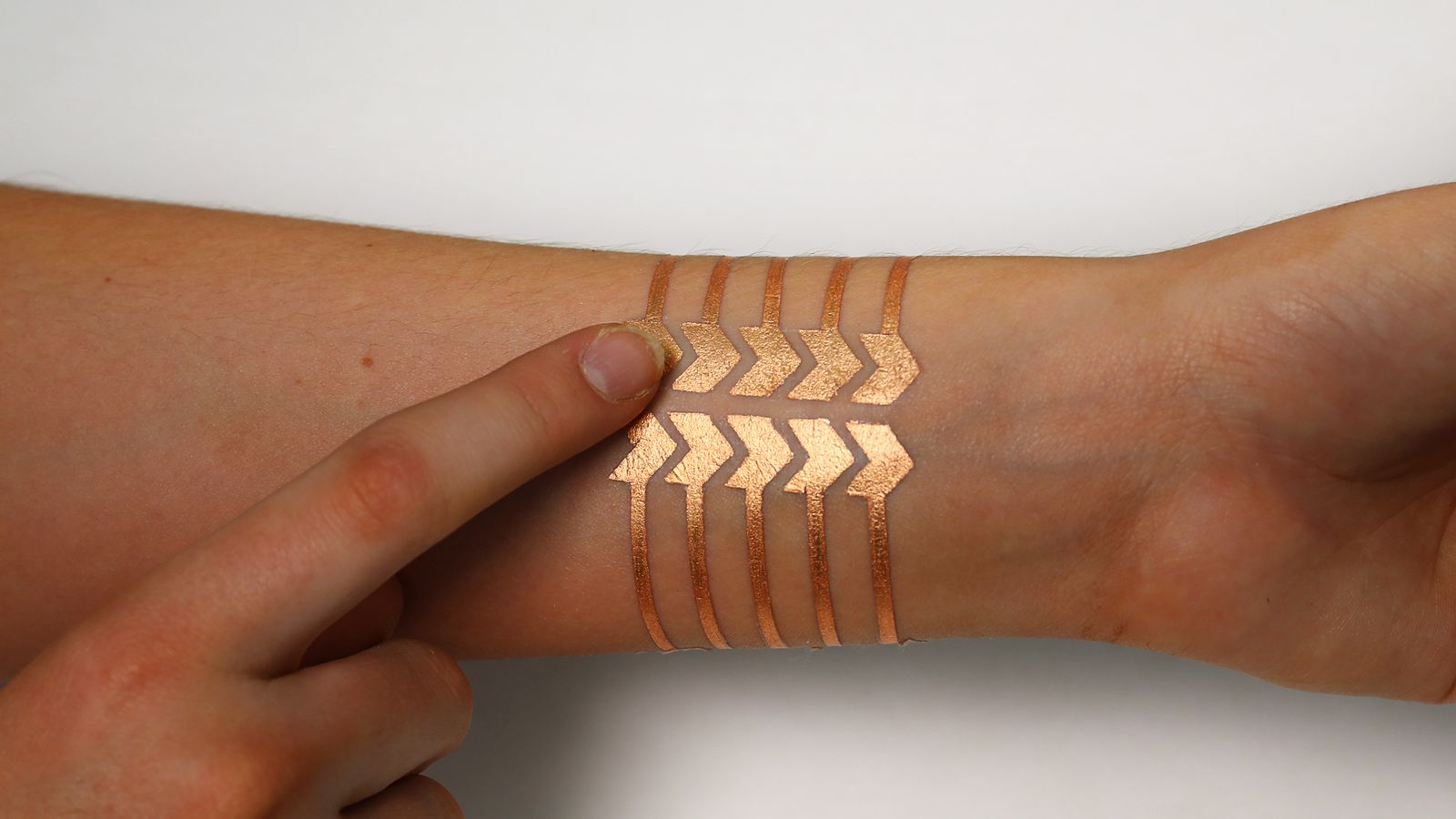Archive for the ‘mobile phones’ category: Page 207
Aug 22, 2016
New theory could lead to new generation of energy friendly optoelectronics
Posted by Karen Hurst in categories: computing, mobile phones, particle physics, quantum physics
Researchers at Queen’s University Belfast and ETH Zurich, Switzerland, have created a new theoretical framework which could help physicists and device engineers design better optoelectronics, leading to less heat generation and power consumption in electronic devices which source, detect, and control light.
Speaking about the research, which enables scientists and engineers to quantify how transparent a 2D material is to an electrostatic field, Dr Elton Santos from the Atomistic Simulation Research Centre at Queen’s, said: “In our paper we have developed a theoretical framework that predicts and quantifies the degree of ‘transparency’ up to the limit of one-atom-thick, 2D materials, to an electrostatic field.
“Imagine we can change the transparency of a material just using an electric bias, e.g. get darker or brighter at will. What kind of implications would this have, for instance, in mobile phone technologies? This was the first question we asked ourselves. We realised that this would allow the microscopic control over the distribution of charged carriers in a bulk semiconductor (e.g. traditional Si microchips) in a nonlinear manner. This will help physicists and device engineers to design better quantum capacitors, an array of subatomic power storage components capable to keep high energy densities, for instance, in batteries, and vertical transistors, leading to next-generation optoelectronics with lower power consumption and dissipation of heat (cold devices), and better performance. In other words, smarter smart phones.”
Aug 22, 2016
Uber Debuts Its First Fleet of Driverless Cars in Pittsburgh
Posted by Amnon H. Eden in categories: business, mobile phones, robotics/AI, sustainability, transportation
Starting later this month, Uber will allow customers in downtown Pittsburgh to summon self-driving cars from their phones, crossing an important milestone that no automotive or technology company has yet achieved. Google, widely regarded as the leader in the field, has been testing its fleet for several years, and Tesla Motors offers Autopilot, essentially a souped-up cruise control that drives the car on the highway. Earlier this week, Ford announced plans for an autonomous ride-sharing service. But none of these companies has yet brought a self-driving car-sharing service to market.
Uber’s Pittsburgh fleet, which will be supervised by humans in the driver’s seat for the time being, consists of specially modified Volvo XC90 sport-utility vehicles outfitted with dozens of sensors that use cameras, lasers, radar, and GPS receivers. Volvo Cars has so far delivered a handful of vehicles out of a total of 100 due by the end of the year. The two companies signed a pact earlier this year to spend $300 million to develop a fully autonomous car that will be ready for the road by 2021.
The Volvo deal isn’t exclusive; Uber plans to partner with other automakers as it races to recruit more engineers. In July the company reached an agreement to buy Otto, a 91-employee driverless truck startup that was founded earlier this year and includes engineers from a number of high-profile tech companies attempting to bring driverless cars to market, including Google, Apple, and Tesla. Uber declined to disclose the terms of the arrangement, but a person familiar with the deal says that if targets are met, it would be worth 1 percent of Uber’s most recent valuation. That would imply a price of about $680 million. Otto’s current employees will also collectively receive 20 percent of any profits Uber earns from building an autonomous trucking business.
Continue reading “Uber Debuts Its First Fleet of Driverless Cars in Pittsburgh” »
Aug 19, 2016
Senior DARPA Scientist Warns of Widespread LETHAL ATTACKS Upon the Public Coming From Microwave Towers
Posted by Karen Hurst in categories: mobile phones, security, terrorism
Hmmmm;
It is an old issue, but with a new revelation by the most credible insider source to date. Recently, I was contacted by Dr. Paul Batcho. Batcho is a former DARPA senior scientist who worked at Los Alamos and held a top secret security clearance. In short, Batcho asserts that clandestine forces are purposely engaging in “acts of terrorism” against the general public through emission of dangerous frequencies from cell phone and microwave towers in the St. Petersburg/Orlando/ Tampa, Florida area.
Before launching into a revelation of the stunning claims presented to me by Dr. Batcho, let’s establish his crediblity as a reliable witness.
Aug 19, 2016
‘Interscatter communication’ could help your brain implant talk to your iPhone
Posted by Klaus Baldauf in categories: energy, internet, mobile phones, neuroscience, wearables
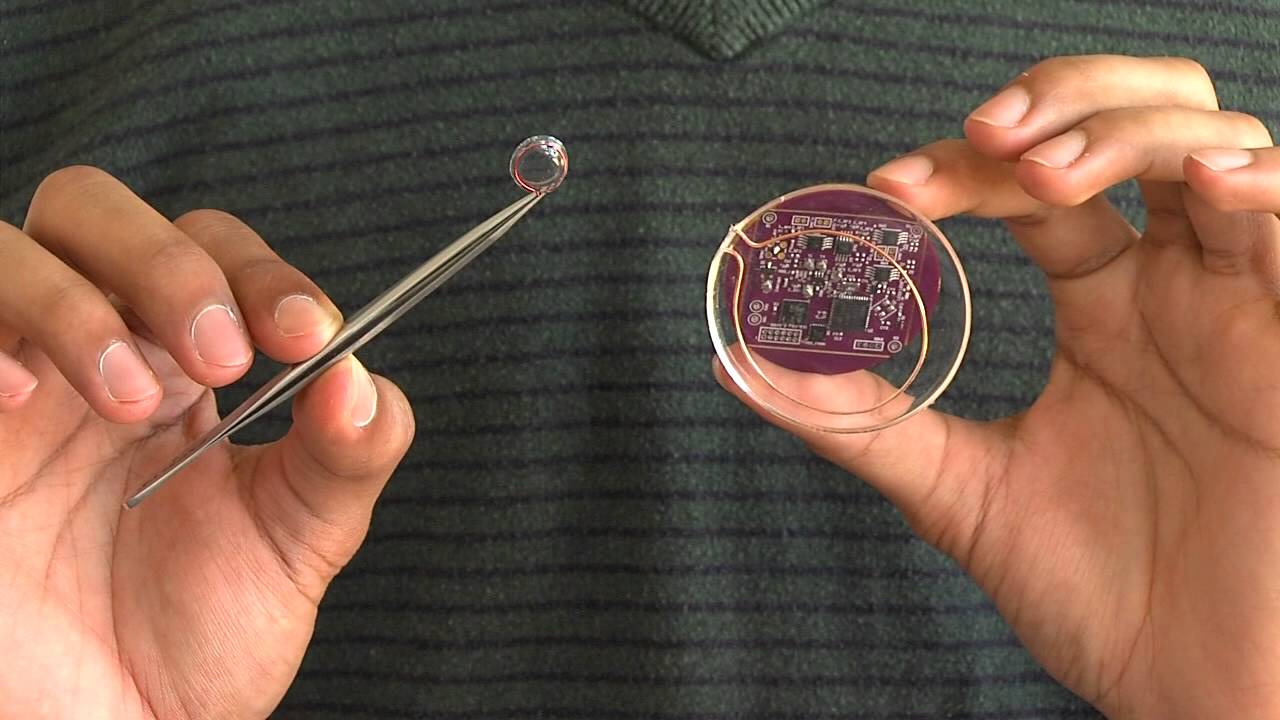
Researchers have created a way of letting next-gen wearables and implants communicate with the outside world using 10,000x less power than regular Wi-Fi.
Aug 18, 2016
Is Apple’s China R&D centre an attempt to show that China is more important than India?
Posted by Karen Hurst in category: mobile phones
I do wish Tim a lot of luck.
Going by the data from all quarters, the iPhone maker isn’t in the best of shapes when it comes to the China market. It’s the slow down in the China market that seemingly compelled Tim Cook to look at India with hopes. After all, never before has India got mentioned in Apple’s earnings call, and this was also the first time that Tim Cook visited India to make a slew of announcements. Today, we have the first (in Asia) R&D centre for Maps and an incubator in Bengaluru, along other announcements.
If you were thinking that India is finally becoming the ‘apple’ of Tim Cook’s eyes, then the latest announcements will tell you otherwise. Tim Cook has announced that Apple will have an R&D centre in China by the end of the year. And why not, Apple believes that we are where China was 6–7 years ago. But that’s not all, the company may have also miffed officials with its R&D in India announcements.
This is why tech must never leave their eye off their companies, innovation, and future; unlike China many in big tech have become bogged down in US Politics, etc. instead of their own competitive landscape something that many industry leaders learned many decades ago. Granted, you must always be concern over regulations, etc.; however, some in tech went further than that by acting in some cases like they’re running for office meanwhile their competitors flourish and don’t bother themselves with background noise.
As the old saying goes “never mix politics and religion in the work place” and this is why. Now, both China and Russia are challenging US tech like never before because of tech’s own distractions outside their companies. And, yes some may say it is tied to the S. China Sea; however, that is just one of many excuses which is not the real reason behind the drop of Apple, Uber, etc. Frankly China is showing the world they are serious in their own commitment to dominate tech taking the title from the US. I suggest companies wake up and focus on what they do best which is tech not government politics. Want to be a politician then please resign and run for government office ad let others who are passionate about tech run tech.
Farhad Manjoo, New York Times Tech Reporter, weighs in on Apple’s latest investments in China, his outlook for the iPhone and Berkshire Hathaway increasing their stake in the tech giant.
Aug 17, 2016
Interscatter enables first implanted devices, contact lenses, credit cards to ‘talk’ WiFi
Posted by Bruno Henrique de Souza in categories: augmented reality, internet, mobile phones
Engenheiros da Universidade de Washington introduziram uma nova forma de comunicação que permite que dispositivos como implantes cerebrais, lentes de contato, cartões de crédito e pequenos eletrônicos vestíveis falar com aparelhos de uso diário, como smartphones e relógios.
Este novo” Comunicação interscatter” funciona convertendo sinais Bluetooth em transmissões Wi-Fi através do ar. Usando apenas reflexões, um dispositivo interscatter como uma inteligente de lentes de contato converte sinais Bluetooth a partir de um SmartWatch, por exemplo, em transmissões Wi-Fi que podem ser apanhados por um smartphone.
Aug 17, 2016
MIT and Microsoft Research made a ‘smart’ tattoo that remotely controls your phone
Posted by Elmar Arunov in categories: mobile phones, wearables
A group of PhD students from the MIT Media Lab and researchers from Microsoft Research have come up with the ultimate wearable: a temporary tattoo that can turn into a touchpad, remotely control your smartphone, or share data using NFC.
The technology, which is described on MIT’s website and will be presented in full at a wearables symposium next month, is called DuoSkin. The researchers say you can design a circuit using any graphic software, stamp out the tattoo in gold leaf (which is conductive to electricity), and then apply other commodity materials and components that would make the tattoo interactive.
The paper presents three key use cases for the tattoo: you could use it to turn your skin into a trackpad, design it to change color based on temperature, or pull data from the tattoo. In one photo shared by MIT the tattoo even includes LED lights, creating a kind of glowing display on the skin.
Aug 15, 2016
Google is developing an OS called “Fuchsia,” runs on All the Things
Posted by Shailesh Prasad in categories: computing, mobile phones, transportation
Every single operating system developed by Google to date has one thing in common: they’re based on the Linux kernel. Chrome OS, Android, Chromecasts, you name it. Linux has powered Google hardware for years.
However, the Linux kernel is not ideal for every situation. Especially in the case of embedded devices like car dashboards or GPS units, full-blown desktop kernels like Linux impact performance and cause other issues. There’s a massive ecosystem of operating systems designed for embedded hardware, and Google may be working on their own.
Enter “Fuchsia.” Google’s own description for it on the project’s GitHub page is simply, “Pink + Purple == Fuchsia (a new Operating System)”. Not very revealing, is it? When you begin to dig deeper into Fuchsia’s documentation, everything starts to make a little more sense.
Continue reading “Google is developing an OS called ‘Fuchsia,’ runs on All the Things” »
